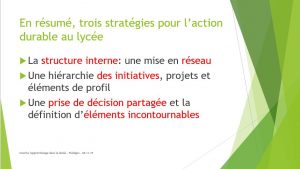The challenge of multilingualism at school
Luxembourg is characterized by a multilingual and multicultural environment, the likes of which are rarely found abroad. In terms of school provision, there is today a clear trend to resolve the difficulty of this heterogeneity through international, European or private school structures, focused on a specific language. Are we not missing a great opportunity for an inclusive national school offer? In this carte blanche, Gaston Ternes talks about the subject.
Our advantage so far has been that in our small country we have learned German, French and English languages at a high level. It is an asset for our schools that there are on average around fifty different mother tongues spoken at home. The schools in the Luxembourg national school system are therefore, by their very nature, all “international schools”. However, this richness also has its drawbacks: Researchers regularly point out that too many students are not up to the high demands of our language teaching and therefore do not make sufficient progress in learning other subjects.
Unable to meet these ambitious demands, young people undergo two regulatory mechanisms: Repeat class or move to a less demanding structure, general or preparatory education. The first measure of grade repetition has long been deemed completely ineffective in scientific studies on the subject. The second measure is also bad: due to a lack in one language, one is downgraded overall and deprived of possible performance in other subjects.
A child who repeats a year costs the State around 45,000 euros in secondary education and 25,000 euros in primary education. This is a lot of money that would have been better invested in in-depth reflection on our language teaching.
Why aren't we tackling this problem? After all, we can count on many school initiatives. We have enough studies that indicate possible solutions. We can draw on the experience of teachers who face language challenges on a daily basis. However, the framework is unfortunately too narrow to allow effective solutions.
The answers lie in the didactics of language teaching, in the importance of learning the language in its context, in the motivation to learn a foreign language because one needs it in one's environment. In this sense, language teaching must be rebuilt from the ground up, that is, from primary school to the baccalaureate. As an example, languages could be offered with different accentuations and levels. We absolutely must give our language teachers a common voice in national working groups and thus define a new framework!
Foreign languages are essential for citizens who want to work together across borders. The answers to this great challenge cannot therefore be limited to offering ever more specific language study programs.



